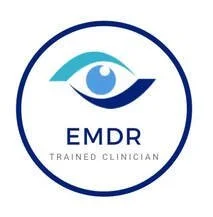
Kristine Rush, MSW, LICSW
“If we can share our story with someone who responds with empathy and understanding, shame can’t survive.
”
Pronouns: She/Her
Provider’s Education, Training, Experience
While serving in the Army, I witnessed many people around me struggling with mental illness. This experience inspired me to become a clinical social worker when I ended my career in the military. I graduated from Austin Peay State University in May 2018 with my bachelor’s in social work (BSW) before moving to New York City, where I completed my master's in social work (MSW) at New York University in May 2020.
While living in New York, I worked as a crisis counselor for the city's mental health crisis line providing brief supportive counseling, crisis intervention, and suicide prevention. My internship during graduate school was with an interdisciplinary team serving clients who have frequent contact with mental health, criminal justice, and homeless services, recent behavior that was deemed unsafe and escalating, and those poorly served by outpatient settings. The primary diagnosis for the team's participants was schizophrenia, schizoaffective disorder, bipolar disorder, and co-occurring substance use. After relocating to Washington, I continued working with this population at a community mental health agency providing individual therapy and case management services out in the community.
I am a Licensed Independent Clinical Social Worker in Washington (License# LW61628913).
Provider’s Therapeutic Orientation and Treatment Modality
One of my favorite things I get to do as a therapist is meeting a variety of people and helping them live authentically. I work from a person-centered, trauma-informed, and holistic perspective. I primarily provide therapy using Cognitive Behavioral Therapy (CBT), Dialectical Behavior Therapy (DBT), the Gottman Method, mindfulness techniques, Eye Movement Desensitization and Reprocessing (EMDR) and will pull from other evidence-based practices for individualized treatment.
I offer counseling services for individuals and relationships. I see a range of people but have a special interest in sexual trauma, compulsive sexual behavior, sexuality, gender, and consensual non-monogamy, as I’m working on certification for sex therapy. It’s important to have a space where we can talk about our concerns and desires that is non-judgmental, knowledgeable, and supportive.

